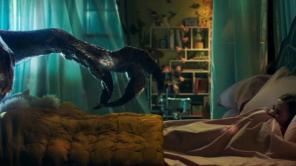28/06/18
The Grassmarket, Edinburgh
When the temperature soars, a person’s fancy turns inevitably to thoughts of ice cream. Visitors to Edinburgh’s popular tourist magnet The Grassmarket cannot fail to have noticed the habitual queues arranged haphazardly in front of a tiny, unprepossessing cafe called Mary’s Milk Bar. The place is a bit of a legend around the city and, unusually in such cases, there really is a Mary, who hails from Yorkshire, and who trained in Bologna at the prestigious Carpigiani Gelato University. She takes her inspiration from the milk bars of the 1940s and makes all the ice creams fresh every morning, then serves them until they’re gone, which – given the current heatwave – doesn’t take very long.
The place offers a few other things, of course: coffee, milk shakes, chocolates – but, frankly, it’s the ice cream that’s king here, ranged in a handsome display case and featuring a myriad brilliant colours and some pretty unusual flavours. Peanut butter and toffee, anyone? Liquorice and passionfruit? Green tea? Or will you just go for plain old milk flavour? There’s something here for everyone.
But, you may say, those are pretty long queues. Is it really worth the wait? Well, I have to tell you that my first mouthful of their famous salted caramel confirms that this is a reputation founded not on fresh air, but on flavour. Indeed, this just might be the best ice cream I’ve ever tasted and it’s certainly amongst the finest to be found in Edinburgh, which really isn’t short of decent ice cream parlours. It’s good value too: a generous helping, served up in a crunchy sugar cone that – important this – offers ice-cream right down to the very last bite, costs only £2.50 (£3.50 for a double scoop).
As you lick happily away, you can’t help wondering how Mary’s business does during the colder months but, like Groucho Marx, I hate hot ice cream and, anyway, while the weather’s so clement, it’s imperative to get down to the Grassmarket, tag on the end of that queue, and wait patiently for your turn to choose your favourite flavour.
Trust me. You won’t be disappointed.
5 stars
Philip Caveney





























